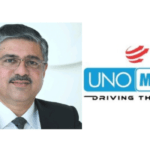In every organisation, there will always be some pro-active people, who meet the targets, finish projects on time and are willing to go the extra mile for the company. On the other hand, there are also people who are simply working, without giving their best. Their results are far from promising, and more often than not they end up exceeding deadlines. What is the difference between these two kinds of people? How are some people so passionate about work and the others not so? The answer lies in motivation, which drives some to do more than what is required or expected of them. It is all because of the internal motivation that they get, which we also call intrinsic motivation.
Intrinsic motivation is when people are motivated by internal factors, such as interest, passion and the joy derived from what they do. Because of intrinsic motivation, work ceases to be just work, but becomes one’s passion.
Organisations should try and make intrinsic motivation a part of their culture. It is something that will not just boost their employee-engagement agenda, but also enhance the performance of the company, which will gradually turn into profits.
“At Tata, motivation is driven by our core values. We give them a feeling of pride and purpose in what they are doing. They believe that their work is going to benefit others, and this belief drives them to perform better and bring their true self to work every day.”
Subir Verma, head – HR, Tata Power DDL
On the other hand, extrinsic motivation is very short term. It is motivation driven by an external factor, such as rewards or benefits, or the salary that one gets at the end of the month, and other monetary benefits. Such extrinsic motivation does not last for long. It is not sustainable.
For instance, one may strive hard and put in 100 hours of work in a week in pursuit of a promotion. But this high lasts only till the promotion is achieved and does not continue long beyond that. On the other hand, if one is motivated from the inside, one will always experience success at all times and this will help one perform even better as one grows in life.
According to Anant Garg, director – HR, India & South Asia, Becton Dickinson, when people are driven and motivated by internal factors, they are more willing to go the extra mile, “Intrinsically- motivated people are more likely to take ownership, put in the discretionary effort and deliver with lesser supervision, which is more effective and productive for any company,” enunciates Garg.
“Intrinsically- motivated people are more likely to take ownership, put in the discretionary effort and deliver with lesser supervision, which is more effective and productive for any company.”
Anant Garg, director – HR, India & South Asia, Becton Dickinson
He also states that if someone is not internally motivated for a task or a role, it is very difficult to fundamentally change that. He suggests performing a strong assessment at the hiring or staffing stage itself. This requires a higher focus on behavioural competencies and attitude, as opposed to just matching the CV with the job description and looking for experience/ technical skill match.
Subir Verma, head – HR, Tata Power DDL, states that giving a sense of purpose and pride to the people for the work they do is the key to internally motivating them.
“At Tata, motivation is driven by our core values. We give them a feeling of pride and purpose in what they are doing. They believe that their work is going to benefit others, and this belief drives them to perform better and bring their true self to work every day,” shares Verma.
 As we all know, during the pandemic, salary cuts and trimming down of benefits had become common. Still, in some companies, people continued to work very hard. As per Srinath Krishnan, country manager – total rewards, HPE India, companies have trained themselves to motivate their people from within.
As we all know, during the pandemic, salary cuts and trimming down of benefits had become common. Still, in some companies, people continued to work very hard. As per Srinath Krishnan, country manager – total rewards, HPE India, companies have trained themselves to motivate their people from within.
“Investing in employees means upgrading their skills, showing them a clear career path, standing by the staff during pandemic, charting out clear development plans and also appreciating employees. This helps employees remain motivated and focused on physical, emotional and financial programmes.”
Srinath Krishnan, country manager – total rewards, HPE India
There are many small ways to cultivate intrinsic motivation in the organisational culture.
Purpose: One way is to give people a greater purpose to do what they are doing. Link the missions of the organisation to a bigger purpose and greater good of the people, which will motivate people to work towards fulfilling that goal.
Learning & development: It is important to keep investing in the learning and development of the people. This will help them stay relevant and prepare them for bigger roles in their career.
“Investing in employees means upgrading their skills, showing them a clear career path, standing by the staff during pandemic, charting out clear development plans and also appreciating employees. This helps employees remain motivated and focused on physical, emotional and financial programmes,” opines Krishnan.
Rewards: Giving employees small rewards — not necessarily expensive but thoughtful enough to satisfy and touch them — will also help them stay motivated. For instance, a personal letter of appreciation from the CEO with a small voucher can create a lot of impact.
Promotions: People can be put in roles which have growth and continuous learning. This will allow them to expand their horizons and keep challenging themselves to achieve greater heights.
We need to understand that it is not just money that drives people to work hard, but other factors too, that have long-term impact on the overall engagement levels of employees.
Value our content... contribute towards our growth. Even a small contribution a month would be of great help for us.
Since eight years, we have been serving the industry through daily news and stories. Our content is free for all and we plan to keep it that way.
Support HRKatha. Pay Here (All it takes is a minute)






































I think both both autonomy, competence which are integral to intrinsic motivation has a lot of cultural influence lacking any kind of universality. Suggesting strategies fostering intrinsic motivation to benefit organizational creativity must include cultural aspect.